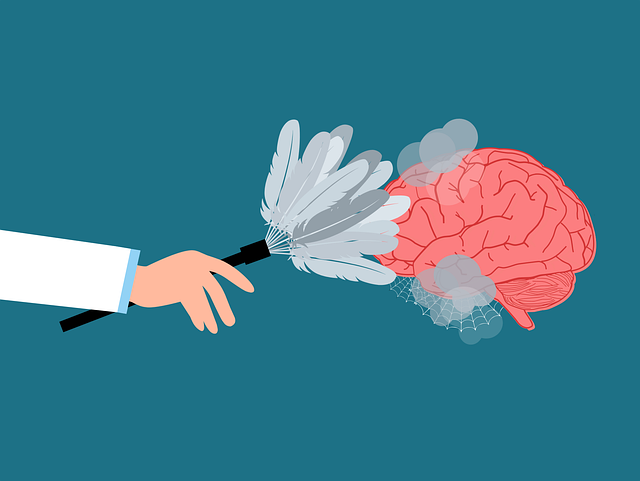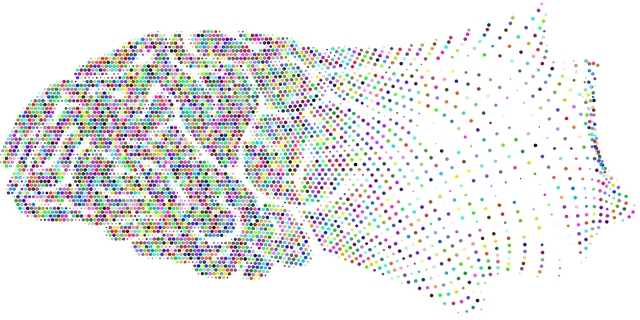Early intervention is vital in improving mental health outcomes for young children at risk of psychotic disorders. Recognizing early signs and providing tailored therapies, such as cognitive-behavioral therapy (CBT), empowers children to develop resilience and manage stress. Parents and caregivers play a crucial role through open communication and self-care routines, enabling them to accurately identify and address mental health concerns, including psychosis in young individuals. Effective support includes family-focused interventions and normalizing therapy for better diagnosis and treatment.
Mental illness diagnosis accuracy is a critical aspect of improving outcomes for young patients, especially those experiencing psychosis. This article delves into targeted interventions aimed at enhancing diagnostic efforts. We explore early intervention strategies for psychosis in children, highlighting the challenges and crucial role of parents. Additionally, we discuss advancements in technology, such as AI, to improve diagnostic tools, and the integration of alternative assessment methods. Furthermore, the need for specialized training and supportive networks for healthcare professionals treating young children with mental illness, particularly those struggling with therapy for psychosis, is emphasized.
- Early Intervention: Targeting Psychosis in Young Children
- – Discussing the challenges of diagnosing psychosis in children
- – Importance of early detection and the role of parents/caregivers
Early Intervention: Targeting Psychosis in Young Children

Early intervention is a crucial strategy to improve mental health outcomes, especially when targeting psychotic disorders in young children. Recognizing the early signs and symptoms of psychosis can be life-altering, enabling prompt therapy for young children. This proactive approach aims to harness their inner strength and develop essential coping mechanisms. By implementing evidence-based practices, such as cognitive behavioral therapy, professionals can enhance emotional intelligence and teach effective stress management techniques.
These interventions focus on nurturing resilience and empowering children to navigate their mental health journeys. Through tailored support, education, and early access to care, it is possible to mitigate the impact of psychosis and foster a healthier, more balanced future for these young individuals.
– Discussing the challenges of diagnosing psychosis in children

Diagnosing psychosis in children presents unique challenges due to the inherent differences in brain development and behavioral expression between children and adults. The symptoms of psychosis, such as hallucinations and delusions, can manifest differently in younger individuals, often masquerading as imaginative play or emotional intensity. This complexity necessitates a nuanced approach to assessment, where professionals must carefully differentiate between typical childhood behaviors and the early signs of psychotic disorders.
Early intervention is crucial for improving outcomes in young people experiencing psychosis. Therapy tailored for this demographic, such as cognitive-behavioral therapy (CBT) and family-focused approaches, can be effective in managing symptoms. Encouraging self-care practices and emotional regulation skills, alongside stress management techniques, plays a vital role in supporting these children’s mental health journeys.
– Importance of early detection and the role of parents/caregivers

Early detection plays a pivotal role in improving mental illness diagnosis accuracy, especially when it comes to psychosis in young children. Parents and caregivers are often the first line of observation, as they spend significant time with their offspring and can notice subtle changes in behavior, mood, or thought patterns. Encouraging open communication and providing a safe space for expression is essential; this could be through self-awareness exercises or mental wellness journaling. By fostering an environment where seeking therapy for young children with psychosis is normalized, parents are better equipped to recognize when professional guidance is required.
Self-care routine development for better mental health can also enhance parental sensitivity. When adults prioritize their own well-being, they become more attuned to the needs of others. This proactive approach ensures that potential red flags are identified and addressed promptly, leading to earlier interventions and improved diagnosis accuracy.
Mental illness diagnosis accuracy, especially in young children, is a complex but crucial area of focus. Early intervention plays a pivotal role in improving outcomes for those experiencing psychosis. By empowering parents and caregivers with knowledge and support, we can ensure timely access to therapy for young children presenting psychotic symptoms. This proactive approach holds the key to navigating the challenges of diagnosis and fostering better mental health outcomes for the future.













